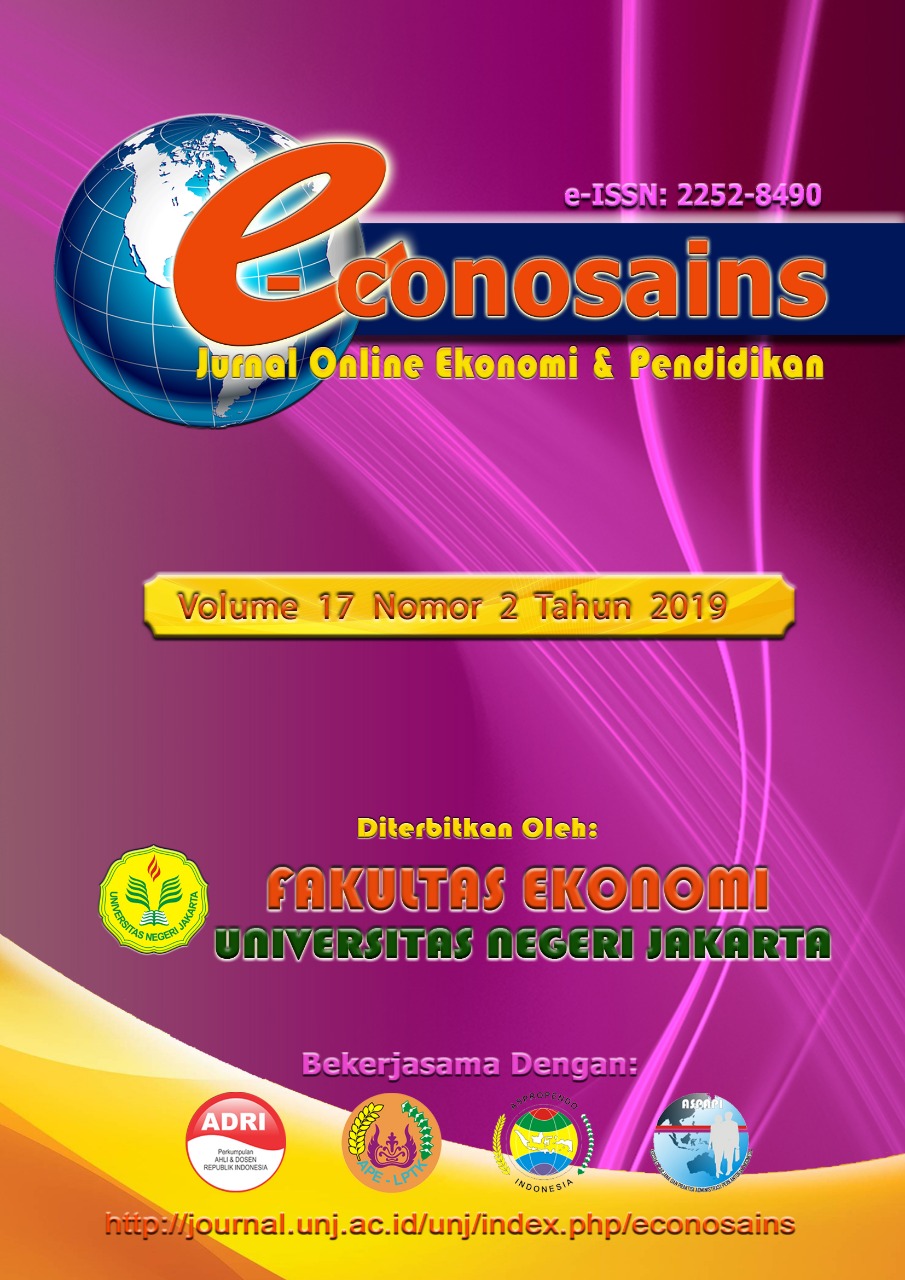RISK-BASED BANK RATIO ON PROFITABILITY OF SHARIA BANKING
DOI:
https://doi.org/10.21009/econosains.0172.09Keywords:
macroeconomics, risk based bank ratio, profitabilityAbstract
The sustainability of Sharia banking in its business activities will be greatly influenced by its profits. Many factors influencing sharia banking in generating profitability, can be influenced by external factors as well as internal banking factors. This research was conducted to test the influence of external factors such as macroeconomics as measured by the growth of inflation and GDP, as well as internal factors that constitute the risk-based bank ratio measured by capital adequate ratio (CAR), financing debt ratio (FDR), and non-financing risk (NPF) to Return On Asset (ROA) as an indicator Profitability of Sharia banking. The method in this research is a quantitative method with inferential statistical analysis. The data analysis tool used is multiple linear regression. Sampling technique in this study using simple random sampling. The affordable population in this study were all Bank Umum Syariah (BUS) in Indonesia from 2015 until June 2019. The results show GDP macroeconomic variables have a significant positive influence on profitability. The risk-based bank ratio variable NPF, explains that there is a significant negative influence on profitability. While the regression coefficient of INF, CAR, and FDR does not have a significant effect on the profitability gained. To compete and expand the market share, the external factors are GDP growth and internal factors the risk-based bank ratio variable NPF can affect the profitability therefore should be noticed by BUS management.
Downloads
Published
How to Cite
Issue
Section
License

Econosains is licensed under a Creative Commons Attribution-NonCommercial-ShareAlike 4.0 International License.









